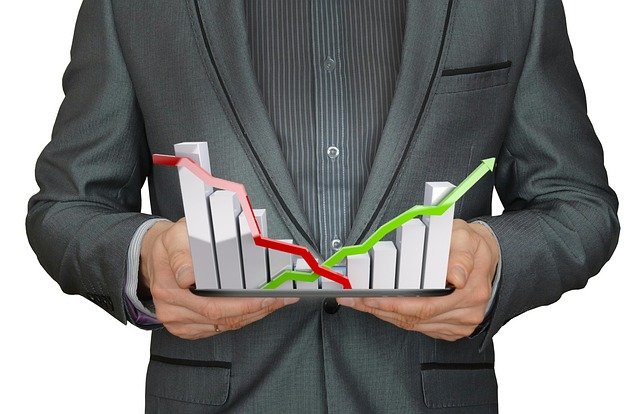How does investing help beat inflation
5 min read
How does investing help beat inflation? Please follow the steps taken by the Central Bank of the country from time to time to control the cash flow in the market as a measure to control inflation.
Encouraging investment by the general public by raising interest rates for their deposits or reducing interest rates to encourage spending as a control measure to control inflation. Making credit cheap or expensive, raising the CRR and SLR of banks indicates investment need or otherwise. Investing doesn’t always help fight inflation.
Inflation occurs when an economy grows because of an increase in spending.
This is somehow related to one of the most popular methods of controlling inflation called contractionary monetary policy.
The goal is to increase the money investing rate
The goal is to reduce the money supply within the economy by decreasing bond prices and increasing interest rates. It helps in reducing expenses
because when there is less money to move around, those who have money want to keep and save it instead of spending it. It also means that there is less available credit, which can reduce expenses as well.
Effect: Therefore, when the Federal Reserve raises its interest rate, banks have no choice but to raise their rates. When banks raise their rates, fewer people want to borrow money
because it costs more to do so while that money accrues at higher interest. So, spending falls, prices fall and inflation slows.
Macroeconomic level of the moment
At the microeconomic level, for the moment it may be; But it is impossible at the macroeconomic level.
Human work cannot create real value, economic activities cannot create wealth,
but consume real value irreversibly and in the meantime concentrate wealth.
Money is made up of reel value and use-value, and use-value
is converted from real value, so the basis of social money is real value which is intrinsically limited in any local space and time.
Investment increase economy
Investment is to increase economic activity. In general, this growth of economic activity is consuming more real value and producing more use value resulting in a decline in the real value
use value ratio (as well as the natural growth of population) and the real value-population ratio. which leads to base inflation.
“Over time, inflation is the biggest risk to your capital,” says Ben Kumar, senior investment strategist at investment house 7IM. ‘You should always be concerned about inflation.’
Intrest to be made
In today’s low-interest-rate environment, beating inflation with a savings account is an impossible mission.
Opt for a one-year fixed-rate savings bond and the best rate on offer is 1.5 percent from Atom Bank.
If you’re happy to add up your savings for five years, Atom will pay a higher rate of 1.86 percent
The FTSE 100 and FTSE All-Shares indices have given returns of 15 and 19 percent, respectively.
Successful companies depend on demand
Kumar says: ‘Successful companies have pricing power and can raise their prices without adversely impacting demand. Investing in these businesses means that as they raise their prices, you also make money.’
Add to this the fact that many companies are now recovering from the difficult times experienced during the pandemic, and the competitors of a portfolio of equities to beat inflation look positive.
So with the process of increasing investment, there is an irreversible reduction of real value on the one hand, use value and increase in population on the other
which inevitably leads to base inflation dominating normal socioeconomic conditions.
How much provide inflation protection?
How Much: Because they provide inflation protection, principal security, and government support, TIPS seem like ideal assets for retirement. But the return potential of TIPS is low: TIPS yields are currently negative, with the assumption that future inflationary payments of TIPS will make them worth holding.
and nominally U.S. Unlike Treasury bonds, the TIPS market has occasionally seized up in equity market shocks; TIPS have not been as reliable for equities as treasury or cash.
On the other hand, macroeconomic conditions have not developed to the point
that base inflation can completely outweigh the effect of concentration of wealth
in microeconomic competition at the individual economic unit level. So this economic competition can still continue, and one can still get rich.
What you should look for when considering an investment in an IPO? By then there will be more losses than investments.
The value of use-value is in a positive relationship with real value conditions, but this does not mean that the relationship is a directly proportional relationship — when real value conditions deteriorate, use-value depreciation accelerates, but your profit The real price situation may not accelerate that kind of decline, especially under macroeconomic conditions.
This is irreversible process
This process is an irreversible process, so I hope that all human beings will rationally recognize reality and prevent this from happening by rational efforts made by the people of our generation to me made to function the country.
the economy to a sustainable approach like pet care adda for keeping your investment safe and sound.
Because the way money is made, it is constantly being raided to pay off debt and spur the economy. Because of this everything is getting more expensive with a global CPI of 2%,
every year what you have will be 2% less or buy 2%.
So if you want your money to be worth the same amount as it is in a year,
it needs to get at 2% per annum (or more depending on where you are). Buy or buy the same amount of money in a year’s time.
Inflation refers to a steady increase in the general price level. This is due to the increase in the money supply in the economy.
- cost-push inflation
- inflation demand
- creeping inflation
- walk inflation
- ongoing inflation
- Hyper (or) gallop inflation.
When inflation enters the economy, the purchasing power of money decreases.
Then it translates into demand. This tends to increase the prices.
It is best to invest our money in industrial securities and in banks and financial institutions.
This reduces the circulation of money in the economy.
Which brings down the prices.
inflation benefit debtor
It adversely affects creditors, pensioners, fixed income groups






